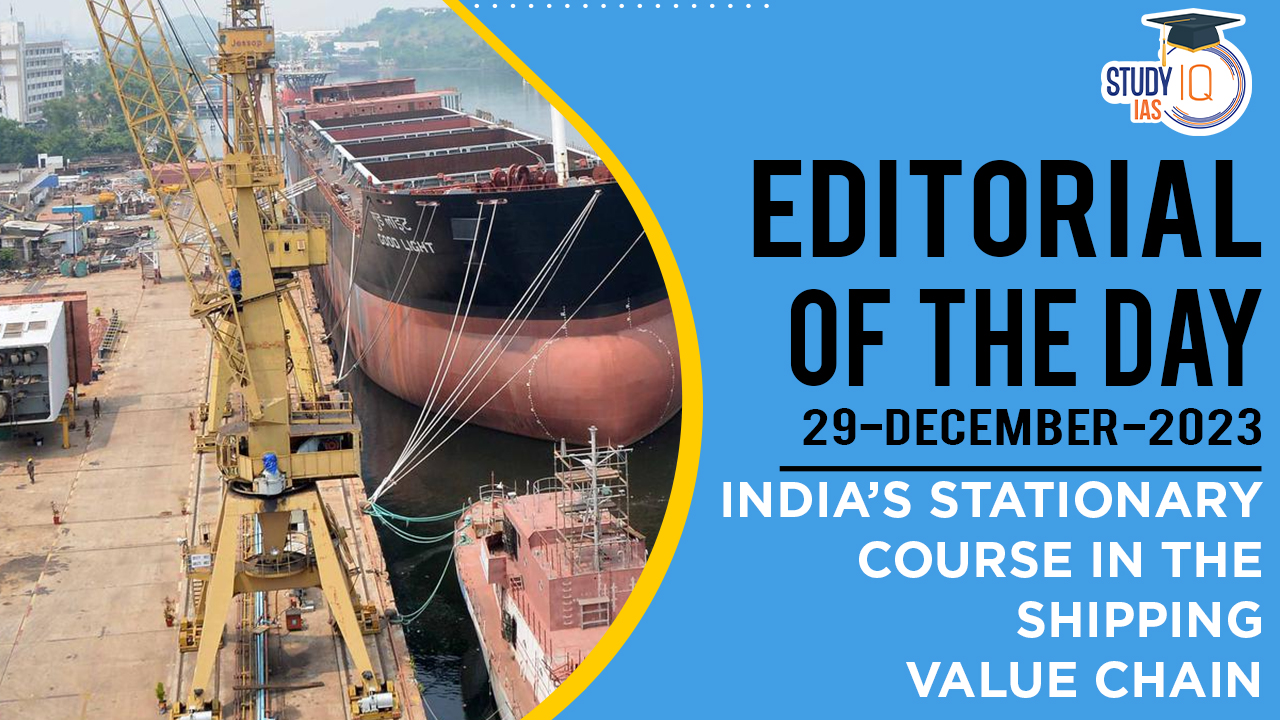Table of Contents
Context: India has had a historical advantage in ship-owning and modern shipbuilding but there has been a shift in the narrative post-1980s, with China outpacing India in maritime development.
Yangtze River
The Yangtze River in China, deeply rooted in the nation’s cultural, traditional, and commercial tapestry, serves as a testament to China’s contemporary accomplishments, notably exemplified by initiatives such as the Three Gorges Project. This river has become a bustling centre for maritime trade, frequented by large merchant vessels and various smaller barges.
We’re now on WhatsApp. Click to Join
Reasons For India Lagging Behind China
- Labour Supply vs. Industry Development: Successive Indian governments have prioritised boosting foreign exchange through labour supply. This trend is evident in the maritime sector, where the focus has been more on growing the number of seafarers rather than advancing in the shipping value chain.
- Historically, Mumbai and Kolkata were the key hubs for training and employing seafarers in India.
- Indian professionals excel in seafaring and managing maritime companies, but lag in ship ownership, chartering, finance, and construction.
- Government Policy and Maritime Development: India’s Maritime Agenda 2020 and Maritime India Vision 2030 have not sufficiently addressed the need for development in the areas of shipbuilding and ownership.
- Underutilised Geographic and Coastal Resources: Despite its strategic location and extensive coastline, India has not fully leveraged these assets to enhance its global maritime standing.
- China’s Maritime Policy and Achievements: China, with its targeted government strategies, has emerged as a leading force in shipbuilding, accounting for half of the world’s ship production by 2020. Chinese shipowners often utilise state-owned shipyards, reflecting a robust government-industry collaboration.
Way Forward
- For India to gain a significant position in the global maritime scene, it should focus on boosting ship owning, chartering, financing, and building.
- This approach would not only enhance India’s role in international trade but also strengthen its strategic and military capabilities.


 Utkal Divas 2025: Odisha Foundation Day ...
Utkal Divas 2025: Odisha Foundation Day ...
 List of Military Exercises of India 2024...
List of Military Exercises of India 2024...
 GPS Spoofing and Its Impact in India: A ...
GPS Spoofing and Its Impact in India: A ...





















